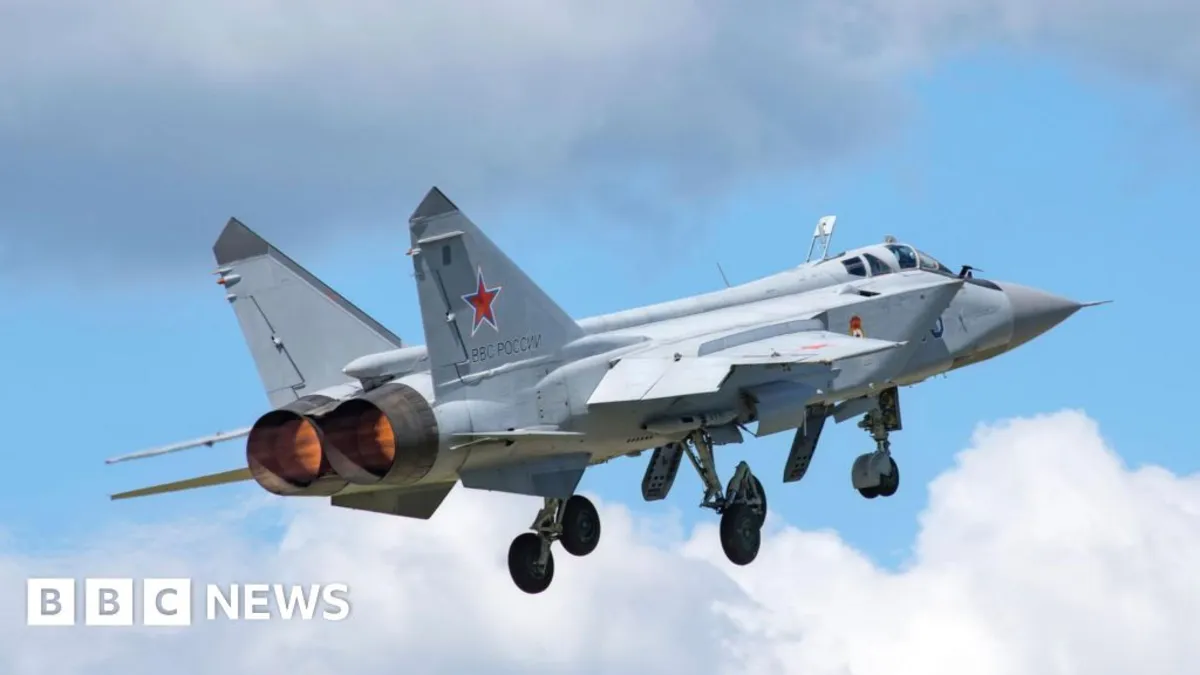
In a significant escalation of tensions, three Russian warplanes violated Estonian airspace and were swiftly intercepted by NATO, as reported by the military alliance. This incident, which occurred on Friday over the Gulf of Finland, involved three Russian MiG-31 fighter jets that entered the airspace of a NATO member nation without authorization, remaining there for approximately 12 minutes. The Estonian Foreign Ministry has condemned this incursion as a brazen act of aggression.
NATO spokesperson Allison Hart highlighted the alliance's quick response, stating that the military body intercepted the Russian aircraft, labeling the event as yet another example of reckless Russian behavior. In light of this violation, Estonian Prime Minister Kristen Michal announced that his government intends to request consultations under NATO Article 4, which allows member states to discuss threats to their territorial integrity.
The Estonian Foreign Ministry took immediate action by summoning the Russian chargé d'affaires to lodge a formal protest regarding the incursion. Top EU diplomat Kaja Kallas characterized the incident as an "extremely dangerous provocation." Estonian Foreign Minister Margus Tsahkna described the incursion as "unprecedentedly brazen," asserting that Russia's ongoing boundary testing and growing aggressiveness necessitate a significant increase in both political and economic pressure.
According to reports, the Russian aircraft entered Estonian airspace from the northeast and were intercepted by Finnish jets over the Gulf of Finland. Once inside Estonian airspace, Italian F-35 jets, deployed under NATO's Baltic Air Policing mission, escorted the Russian jets out. Notably, the Russian aircraft did not file any flight plans, had their transponders turned off, and lacked two-way radio communication with Estonian air traffic control.
Estonian Defence Minister Hanno Pevkur emphasized the unprecedented nature of the 12-minute violation, stating, "In this situation, the only right thing to do is to push them out of Estonian airspace." In a post on X, Kallas reiterated the EU's commitment to support member states in enhancing their defenses against potential threats, asserting that Russian President Vladimir Putin is testing the resolve of the West and that weakness must not be shown.
European Commission President Ursula von der Leyen echoed Kallas's sentiments, stating on X, "We will respond to every provocation with determination while investing in a stronger Eastern flank." As tensions escalate, she emphasized that NATO's pressure on Russia would also intensify. Estonia's ambassador to the UK, Sven Sakkov, stressed the need for clear, practical steps to enhance airspace protection over NATO's eastern flank, noting the determination of Estonians to defend themselves.
In a related context, Poland's military recently reported the downing of at least three Russian drones, with Prime Minister Donald Tusk stating that 19 drones were detected entering Polish airspace. Russia, however, claimed that the incident was not intentional. Meanwhile, Belarus, a close ally of Russia, suggested that the drones entered Polish airspace due to navigation system malfunctions. Shortly thereafter, Romania’s defense ministry reported detecting a Russian drone while monitoring its border with Ukraine.
In response to these ongoing incursions into Poland and Romania, NATO has committed to repositioning troops and fighter jets eastward. Air defense missions over Poland involve the participation of planes from the UK, France, Germany, and Denmark, aimed at strengthening the alliance's eastern flank. Pevkur has called for increased focus on this region, describing it as a vital "joint response line" to maintain security.
On Monday, a French jet was scrambled in response to another potential incursion by Russian drones, though NATO reported that the alert was resolved quickly. As tensions continue to rise, the importance of NATO's rapid response capabilities and collaborative defense strategies becomes increasingly evident.